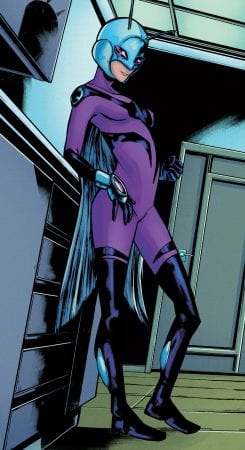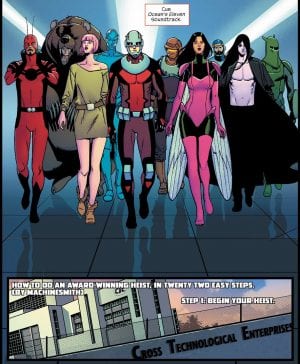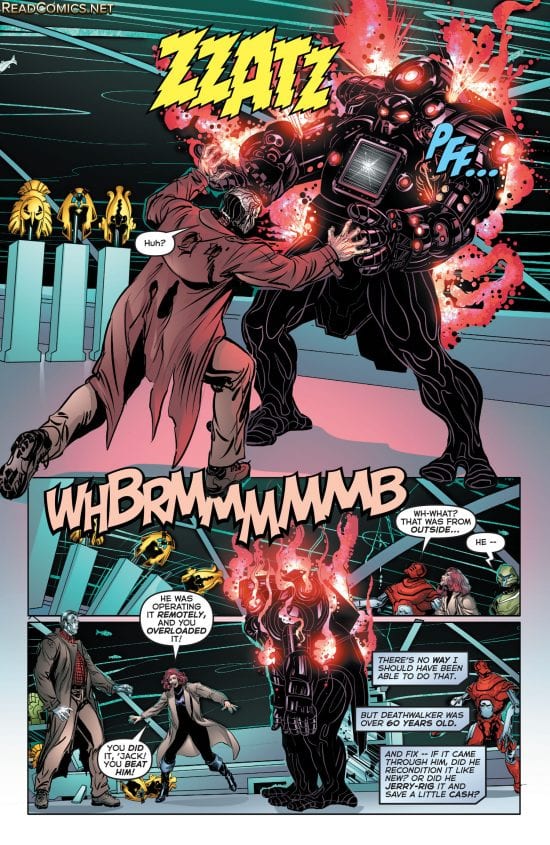HOMER SIMPSON’S NOT AN ABETTING MAN
I probably shouldn’t do this. But you know me. Even if you don’t, I know me. Know me well enough to know that, it doesn’t matter whether I should do it. Like the Mean Widdle Kid, I dood it.
(Boy, there’s a joke that you either won’t get or won’t want to admit you’re old enough to get.)
The Simpsons is a comedy show, satirical and not to be taken as an accurate portrayal of anything. The same applies to the comic books based on The Simpsons. Even if The Simpsons were supposed to be as realistic as a Rembrandt, their stories take place in Springfield, whose chief of police is Clancy Wiggum. Let’s face it, if Clancy’s the chief law-enforcement officer, then the laws he’s enforcing have probably been simplified so he can understand them. The Springfield law defining arson is probably, “Fire bad.”
So I can forgive the legal error contained in the story “In the Swim” from Simpsons Illustrated #24. But I can’t forget it. And I’m simply not going to not write about it. Hence what comes next.
In the story, Mr. Burns has invited all the employees of the Springfield nuclear power plant on a Family Fun Cruise. Turns out, however, that Burns was only throwing the party as a distraction while he illegally dumped the plant’s nuclear waste into the Springfield Channel. When Lisa Simpson pointed this out, Burns advised her not to tell anyone. “Remember, in the eyes of the law, everyone on this boat is an accomplice.”
And that’s all the set-up you need or get. Now it’s on to the meatier part of the column: the legal analysis.
So in the eyes of the law, would everyone on the boat be an accomplice to Mr. Burns’ illegal dumping?
No.
Okay, that analysis wasn’t so much meat as it was pink slime. Let’s see if I can’t get the meat content up to that of two all-beef patties hold the special sauce, lettuce, cheese, pickles, onions, and the sesame seed bun.
In the United States, the concept of aiding and abetting is fairly simple. Anyone who actually commits a crime is guilty as the principal offender. Anyone who aids, abets, counsels, commands, induces or procures its commission, is an aider and abettor (or accomplice) and is punishable as if that person were also a principal offender.
If I, for example, agree to drive the getaway car while you rob a liquor store, I’m helping you and am as guilty as you of the robbery, even though I didn’t actually rob it. See, that’s fairly simple. But it’s only half a beef patty. Let’s add more.
The aiding and abetting statutes also require that the accomplice be acting with the same kind of culpability as the principal offender. In other words, the accomplice has to know the principal offender is committing a crime and wants to help the principal offender commit it. So if I help you, but I don’t know you’re committing a crime, I’m not guilty as an accomplice.
In our previous example, if you ask me to pick you up in my car outside a liquor store, but I don’t know you’re robbing the store, I’m not aiding and abbetting your crime, even if I do drive your getaway car.
That principle applied to our story for a time. At first, no one knew what Mr. Burns was up to. And because they didn’t know what he was doing, they weren’t accomplices. Then Lisa Simpson had to spill the beans and tell everyone. So now that they do know what he was doing, are they accomplices to his dumping?
Ah another layer to the analysis. A little more beef. But the answer is the same as before. Even though everyone on the boat knew what Mr. Burns was doing after Lisa shot off her big mouth, no one other than Waylon Smithers. did anything to help him. They weren’t aiders and abettors, because they didn’t aid him.
The law actually has a name for this principle. We call it the Mere Presence Rule.
The Mere Presence Rule is kind of an oddity in the law, because it means exactly what it’s name implies. The rule dictates that if you are merely present when a crime is being committed, you are not guilty as an aider and abettor.
If you’re standing on a corner when that hypothetical criminal from a few paragraphs back robbed the liquor story, you’re not guilty as an aider and abettor, even if you didn’t do anything to stop him. As long as you didn’t do anything to help or encourage the criminal, you are not an aider and abettor.
If you were a passenger in the car while the robber went into the liquor store and then came out and drove away but did nothing to help him, you’re not guilty as an aider and abettor. Not even if you knew in advance that the other person was going to rob the liquor store. As long as you didn’t assist or encourage the robber, you’re not an aider and abettor.
Sure the law might question your decision not to get out of the car and tell someone what was going on when it stopped. (The law might also question your choice of friends. I mean, this friend of yours has robbed how many hypothetical liquor stores now?) However, the law does not require you to do anything to stop the crime; not even telling somebody else that it’s happening. The law only requires that you don’t do anything that actively assists or encourages the criminal.
Getting back to the Simpsons story, all of the nuclear power plant employees were merely present when Mr. Burns illegally dumped nuclear waste in the Springfield Canal. They didn’t do anything to encourage or assist him. They were too busy playing Limbo and drinking some yellow liquid with umbrellas in them. So Mr. Burns and the story were wrong to say that everyone on the boat was an accomplice to his illegal dumping.
Let’s face it, to be an accomplice Homer Simpson would actually have had to do something. And I don’t think he’s got any accomplice-ments to his credit.







